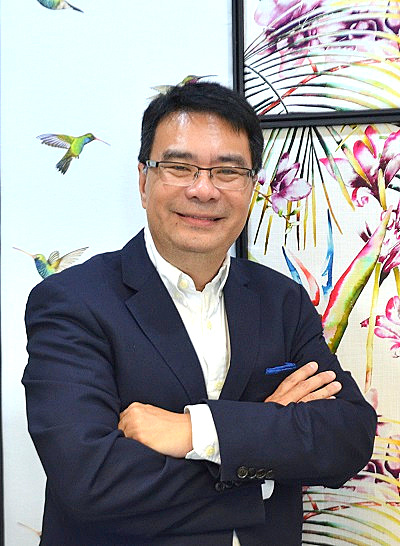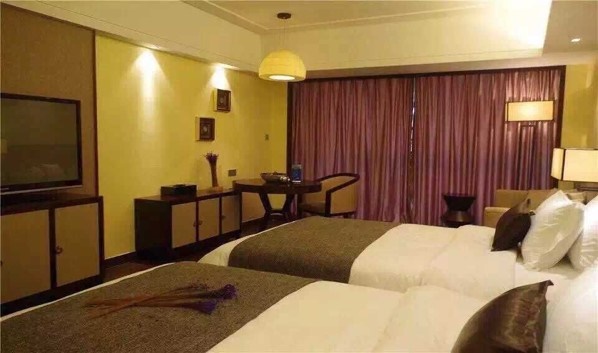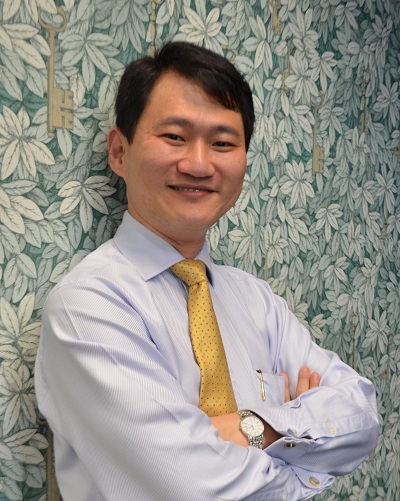|
SHAREHOLDERS OF Cedar Strategic are looking to the Singapore Exchange for a resumption in its stock trading, now that a new management team has scrubbed clean the balance sheet, rebuilt the Group’s internal control structures and acquired a cash generating tourism-orientated property business. |
 “Depreciation of the Rmb encourages domestic tourism,” said Non-Executive Chairman Christopher Chong.
“Depreciation of the Rmb encourages domestic tourism,” said Non-Executive Chairman Christopher Chong.
Photo by Sim KihFormer accountants on board
The partner of venture corporate advisory firm, ACH Investments, Christopher Chong, who had a 3.49% stake (approximately 277.8 million Cedar Strategic shares), initiated shareholders’ action to oust the previous board. After an EGM was called, the previous board resigned and appointed (three members of) the new board in June 2015.
Interestingly, the new appointees have one thing in common – all three started their careers as accountants.
Incumbent Non-executive Chairman, Christopher Chong, started with Ernst and Young, London. CEO Tan Thiam Hee started with Foo Kon and Tan and was subsequently the group financial controller for Haw Par Corporation and ASL Marine. Peter Tan, an Independent Director and the Chairman of the Audit Committee, is a certified public accountant and was the CFO of MFS Technology.
“When the Singapore Exchange decides whether our trading suspension can be lifted, its primary consideration is whether we have a business that is fit for listing and this very much includes having an adequate system for internal controls,” said Mr Chong during an interview with NextInsight.
“We have put in the necessary internal controls as well as provided for the prevention of future lapses in corporate governance by implementing an enterprise risk management system,” he added.
So far, Mr Chong and his management team have already spent about S$2 million on forensic audit work, corporate restructuring and legal action. They even implemented the COSO ERM framework that is usually adopted only by the likes of Fortune 500 companies. ERM provides a framework for risk management that implements processes and internal controls that promote good corporate governance and deters fraud.
Project pipeline
Mr Chong is a seasoned dealmaker. He was the CEO of HSBC James Capel (now known as HSBC Securities) Singapore as well as an executive director of Kay Hian James Capel (now UOB Kay Hian).
Through his contacts as an independent director of Ying Li, a leading property developer in Chongqing, Mr Chong came across a development for 1,099 apartments in Daya Bay, a seaside tourist destination that is near Guangzhou and even nearer Hong Kong. The beach is pristine, compared to the shores of Hong Kong. And it takes less than 2 hours to drive to the resort from Hong Kong or Shenzhen. Cedar Strategic’s brownfield development at Daya Bay features rooms of 45 sqm each, like a SOHO flat. The resort attracts holiday makers from Shenzhen's huge seafood market and food paradise as Huizhou airport is only 60 km away from Shenzhen International Airport.
Cedar Strategic’s brownfield development at Daya Bay features rooms of 45 sqm each, like a SOHO flat. The resort attracts holiday makers from Shenzhen's huge seafood market and food paradise as Huizhou airport is only 60 km away from Shenzhen International Airport.
Photo: CompanyOn 4 November 2015, the Group acquired a 60% stake in Huizhou Daya Bay Mei Tai Cheng Property Development, which owns the brownfield development in Daya Bay, for Rmb 48 million.
The consideration was a steal that allowed the Group to post a negative goodwill of Rmb 21.2 million for FY2015. Mr Chong was able to close the deal for much less than the fair value of the net tangible value of the acquired assets because the development was part of a portfolio of foreclosed real estate assets.
The Group allocated 399 rooms to a hotel management company targeting weekend family holiday makers from Hong Kong, Shenzhen and Guangzhou. The remaining 700 rooms were allocated for sale as holiday homes.
“We don't intend to be a one-property company,” he said. The management is looking at the acquisition of its second brownfield development with a similar business concept.
Dividends and cheap funding
Rmb 323.4 million of gross development value comprising 572 units (24,953 sqm) have been sold (as at 31 December 2015). Of this, only 317 units at the project level and post-acquisition sales of 48 units (RMB 25.5 million) were recognized in FY2015.
Revenue for the remaining 255 units is expected to be progressively recognized in 1H2016 upon handover of the units or one month after notification to buyers to take over the units, whichever occurs earlier. One financial control implemented is to separate persons designated as the authorised representative of the company's official seal, and cheque signatories. CEO Tan Thiam Hee (above) has to approve transactions above certain dollar values.
One financial control implemented is to separate persons designated as the authorised representative of the company's official seal, and cheque signatories. CEO Tan Thiam Hee (above) has to approve transactions above certain dollar values.
"Internal controls often boil down to common sense but people often overlook them," said the CEO.
Photo by Sim KihResidential sales in Huizhou last year surged 42% year-on-year to Rmb 75.8 billion, auguring strong demand for Cedar Strategic’s developments.
Unlike other property developers, the management views dividend payouts as a priority.
“We intend to launch the sales of another 100 units soon. We want to generate strong cash flow. It is my goal to pay dividends as soon as possible,” said Mr Chong.
He explained that to compete successfully as a property player, the Group needs to secure relatively low cost funding, be it for acquiring brownfield developments in China, or to invest in projects elsewhere.
“The only way to distinguish ourselves today from other property companies is to pay a dividend. Otherwise, we might end up being a Chinese company trading at a 70% to 80% discount to NTA. If our share price trades at such a steep discount, there’s no way we are going to find low-cost capital,” he said.







